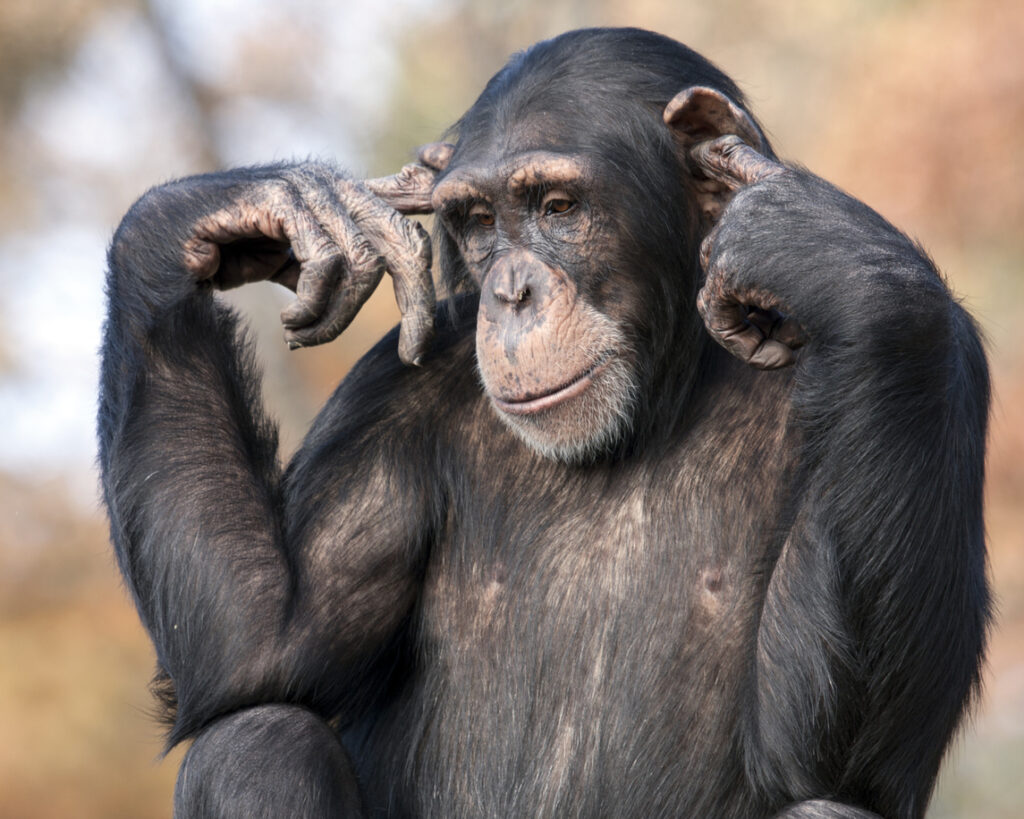The old saying goes ‘it’s a jungle out there’ – but can we really learn more about leadership in business from nature documentaries?
David Attenborough’s latest five-part BBC documentary series, Dynasties followed the lives of five of the world’s most extraordinary and endangered species – chimpanzees, emperor penguins, lions, painted wolves and tigers.
The show’s filmmakers spent up to two years documenting the heroic struggles of particular ‘dynasties’ to survive and secure their futures in often hostile environments.
From Antarctic weather conditions, to prowling gangs of hyenas, the world of Dynasties probably seems far removed from the world of modern business – but there are some cross-overs.
While death from exposure (or by hyena) are fortunately remote possibilities for those of us who work in the developed world, there are nevertheless some important lessons we humans can learn from other animal species.
Monkeying around
I recently attended a lecture on leadership by a professor at King’s Business School in London, who began the lecture by excusing himself for being an academic.
Apparently, business people often ask him what experience of leadership he actually has as an academic.
Unfazed, he compared the situation to the zoologist who studies the behaviour of chimpanzees – you don’t need to be a chimpanzee to know something about how they behave.
In the workplace, nurturing alliances may not involve grooming hair and beards as it does for chimpanzees, but it can involve paying respect to potential allies.
The implication that people in business are, for the academic, comparable to chimpanzees he of course quickly evaded.
While human beings are clearly a lot more complicated and interesting than other species, we also share a great deal with our animal relations including a common evolutionary history. So perhaps we can learn a little about leadership from them.
Leadership lessons from the animal kingdom
Leadership is certainly a big topic in Dynasties. The alpha males (or female matriarchs) were often described as ‘leaders’ with the responsibility for securing the future of their dynasty.
They had to manage the dissent of rivals, take care of their young, protect the group from predators, source food and water, make decisions about where to go, and so on.
Below are four leadership lessons from Dynasties.
1. Nurture and grow your support base
Leaders only function as leaders if there are sufficient numbers of people around willing to act as their followers.
Dynasties illustrated the politics of these dynamics very effectively. In the first episode of the series for example, the viewer was introduced to David, a male chimpanzee who had been alpha for three years.
Three years is a long time to be alpha male (which includes primary mating rights as a major perk), and other chimps had begun to test and challenge David’s leadership.
Showing support for struggling team members, rather than disowning, rejecting or abandoning them, is vital.
In combination with his physical prowess and cunning, David had to nurture tactical alliances to maintain his position. He chose to do so with older chimps who were more predictable and less interested in usurping his position.
In the workplace, nurturing alliances may not involve grooming hair and beards as it does for chimpanzees, but it can involve paying respect to potential allies in other ways: for instance through acts of public recognition and positive feedback, coaching and mentoring, or through taking an interest in employees’ lives and careers.
2. Stick together when times are tough
It’s not always fair weather for businesses in today’s changing marketplace. The disruptions of technology are one obvious factor.
Any major project or change initiative can provide a considerable share of difficulty.
Reminiscent of the epic March of the Penguins, the second episode of Dynasties told the story of a colony of emperor penguins in Atka Bay, on the coast of Antarctica, as they prepared themselves for the coldest and cruelest winter on earth.
The penguins kept warm and protected their chicks by huddling tightly together, and by taking turns on the outside of the huddle.
They reminded us of the power of teamwork, including an even, democratic sharing of the load, to achieve remarkable victories in even the harshest of conditions. A good leader pulls people together when faced with a crisis management situation.
3. Show support for struggling team members
Described by the BBC copywriters as ‘an extraordinary story of leadership against all odds’, the third episode in the series featured the famous Marsh Pride of lions of Kenya’s Masai Mara.
The pride had been abandoned by its adult males, and just two adult females remained to feed and protect eight youngsters.
At one point, a number of the young lions struggled with illness and fatigue having consumed portions of meat that had been poisoned by local herdsmen fearful for their livestock.
Leaders should avoid bold escapades into dangerous, uncertain territories where key assets suddenly become vulnerable.
The pride had to move, but they waited and supported each other for as long as they could. Only one youngster did not recover in time, and its mother was clearly heartbroken to say goodbye.
Poisoned meat is hopefully an unlikely source of struggle in the modern workplace, but the importance of showing support for struggling team members, rather than disowning, rejecting or abandoning them, is vital, whether they are struggling with work deadlines, colleagues, or with physical or mental illness. Now, more than ever before, leaders need emotional intelligence.
4. Keep a check on your ambitions
The fourth episode of the series followed two packs of painted wolves on the banks of the Zambezi River in Zimbabwe.
More commonly referred to as African wild dogs, painted wolves have a reputation as ferocious predators, and the episode certainly offered a selection of brutal hunting scenes.
What was most remarkable about the episode was the animosity between the two packs of wolves, despite the fact that the matriarchs of each pack were mother and daughter.
Blacktip, the daughter, lead the larger pack, and in order to secure more hunting grounds launched an attack on her mother Tait’s pack.
She didn’t stop there, and ended up chasing her mother’s pack across a vast expanse of territory filled with other predators: lions, hyenas, crocodiles that had little sympathy for the wolves.
When a crocodile killed one of Blacktip’s pack, she realised she had taken things too far, and the pack fled back to their home territories as quickly as possible.
No matter how much hostility you may carry towards your competitors, the episode shows how important it is to keep your (matricidal) ambitions in check.
Leaders should avoid bold escapades into dangerous, uncertain territories where key assets suddenly become vulnerable.
The value of nature documentaries to the workplace
Nature documentaries certainly provide fun ways of illustrating leadership challenges and dynamics.
What’s more, given the growing popularity of eco-models of leadership and of natural systems perspectives on organisations, analogies between the natural world and the habitat of any particular workplace are likely to continue to prove fertile ground for some years to come.
What is your ‘spirit animal’ and what kind of natural habitat is your own workplace reminiscent of?
Interested in this topic? You may also enjoy reading Leadership skills: why we all need to learn how and when to lead.










